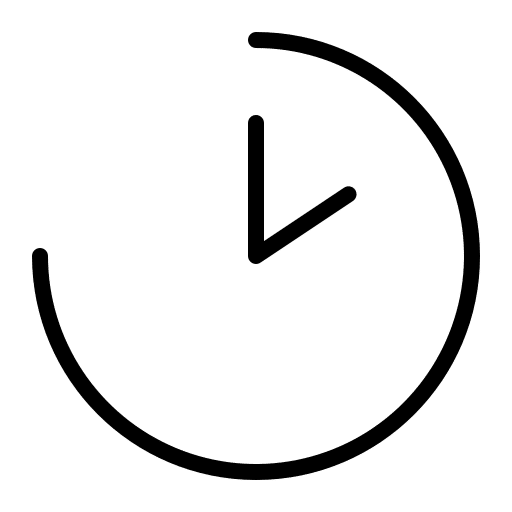What is the best way to start a fitness routine?

 |
November 27, 2023
|
November 27, 2023
Starting a fitness routine can often feel like a daunting task. The world of fitness is vast and varied, with countless exercises, workouts, and training programs to choose from. It can be overwhelming to know where to start and how to structure your time and efforts for optimum health and strength. But fret not, we are here to guide you on your journey to physical fitness.
Identifying and Setting Your Fitness Goals
Before you start any exercise routine, it’s crucial to identify what you hope to achieve. Whether it’s weight loss, muscle gain, increased cardiovascular health, or simply to feel better in your body, having clear goals will help guide your workouts and keep you motivated.
Sujet a lire : Orthopaedic solutions: guaranteed comfort and effectiveness
Start by asking yourself what your primary motivation for starting a fitness routine is. Do you want to lose weight? Build strength? Improve your overall health? Once you have identified your main goal, you can start to develop a workout plan that will help you achieve it.
Remember, your goals should be realistic and achievable. If you set unattainable goals, you may become discouraged and lose motivation. Keep in mind that fitness is a journey, not a destination, and that consistent, gradual progress is key.
A lire aussi : How do antioxidants benefit your skin?
Choosing the Right Types of Exercise
Once you’ve identified your fitness goals, the next step is choosing the right types of exercises to help you achieve them. Different forms of exercise target different areas of fitness, so it’s essential to have a mix of workouts in your routine.
If your goal is to lose weight, for example, you’ll want to focus on cardio exercises that get your heart rate up and burn calories. These could include activities like running, cycling, or swimming.
On the other hand, if you’re looking to gain muscle strength, you’ll want to incorporate weight training exercises into your workout. This could involve lifting weights in a gym or doing bodyweight exercises at home.
Remember to always listen to your body and adjust your exercises as needed. If an activity causes pain or discomfort, it’s important to stop and seek advice from a fitness professional.
Developing a Workout Schedule
Having a regular workout schedule is key to maintaining your fitness routine and achieving your goals. Sticking to a consistent schedule helps to establish exercise as a habit and makes it easier to incorporate into your daily life.
A good starting point is to aim for at least three days of exercise per week. This provides a balance between giving your body adequate time to rest and recover and maintaining regular physical activity.
When creating your workout schedule, consider what time of day works best for you. Some people find that exercising first thing in the morning helps them start their day with energy and focus, while others prefer to workout in the evening as a way to wind down after a long day.
Tracking Progress and Adjusting Your Routine
As you begin your fitness journey, it’s important to track your progress and adjust your routine as needed. This will help you stay motivated and ensure that your workouts are effective.
There are many ways to track your progress, from simple methods like keeping a workout log or journal to more high-tech options like fitness apps or wearable devices. Regardless of the method you choose, the important thing is to regularly assess your performance and make adjustments as needed.
If you’re not seeing the progress you want, don’t be discouraged. Fitness is a journey and it takes time to see results. Consider seeking advice from a fitness professional or coach who can provide guidance and support.
Staying Motivated and Consistent
Consistency is key when it comes to fitness. It’s better to workout a little bit each day than to try and fit in a week’s worth of exercise in one day. Finding ways to stay motivated and enjoying your workouts will make it easier to stick to your routine.
Consider finding a workout buddy or joining a fitness class. Having a support system can make a big difference in keeping you motivated and accountable. Plus, working out with others can make exercise more fun.
Remember, your fitness journey is unique to you. What works for one person may not work for another. The most important thing is to listen to your body, stay consistent, and find ways to enjoy your workouts. After all, fitness should enhance your life, not become a source of stress. Remember to always celebrate your progress, no matter how small. Every step you take is a step closer to your fitness goals.
Incorporating Full-Body Workouts
It’s essential to involve the whole body in your fitness program to ensure balanced muscle development and prevent injuries. Full-body workouts can be an effective way to achieve this. They typically involve strength training exercises that target multiple muscle groups at once, such as squats, deadlifts, and push-ups.
When performing strength training, proper form and technique are paramount to prevent injuries. Your feet should generally be hip-width apart, and your movements should be controlled and deliberate. It’s beneficial to consult a fitness professional or refer to resources like the Mayo Clinic website for detailed instructions on correct exercise form.
Full-body workouts can be especially beneficial for those aiming to lose weight or build muscle mass. They typically burn more calories during the workout compared to exercises that isolate specific muscle groups. Also, they can lead to a higher metabolic rate post-exercise, leading to additional calorie burn.
Aim to include full-body workouts in your exercise routine two to three days per week. Remember to incorporate rest days in between to allow your muscles time to recover and grow. Over time, you should notice improvements in your overall strength and fitness levels.
Importance of Nutrition in Your Fitness Routine
An often overlooked but crucial aspect of starting an exercise program is nutrition. Proper diet can significantly impact your energy levels, workout performance, and recovery. It can also help you reach specific fitness goals, such as weight loss or muscle gain more effectively.
For weight loss, creating a calorie deficit is key. This means consuming fewer calories than you burn through physical activity and your body’s basic metabolic functions. However, it’s important that the calories you do consume come from nutrient-dense foods to fuel your workouts and maintain overall health.
If your goal is to increase muscle mass, you’ll need to consume more protein. Protein provides the building blocks your body needs to repair and build new muscle tissue after strength training workouts. A balanced diet, rich in lean proteins, complex carbohydrates, and healthy fats is vital for good health and fitness.
Hydration is another critical factor in exercise fitness. Dehydration can lead to decreased performance and recovery. Aim to drink plenty of water throughout the day, especially before and after workouts.
Conclusion
Starting a fitness routine may seem challenging, but with clear goals, a well-structured workout plan, consistency, and proper nutrition, you are well on your way to becoming fitter and healthier. Remember, your fitness journey is yours alone. Customize your exercise program to fit your needs and preferences. Whether you prefer upper body, lower body, or full-body workouts, cardio or strength training, morning or evening workouts, the key is to remain consistent in your physical activity. Listen to your body, adjust your routine as needed, and don’t forget to celebrate every step of progress, no matter how small. Fitness should add to your life, not become a source of stress. As the old saying goes, "The journey of a thousand miles begins with a single step." So take that first step today, and embark on your fitness journey.
